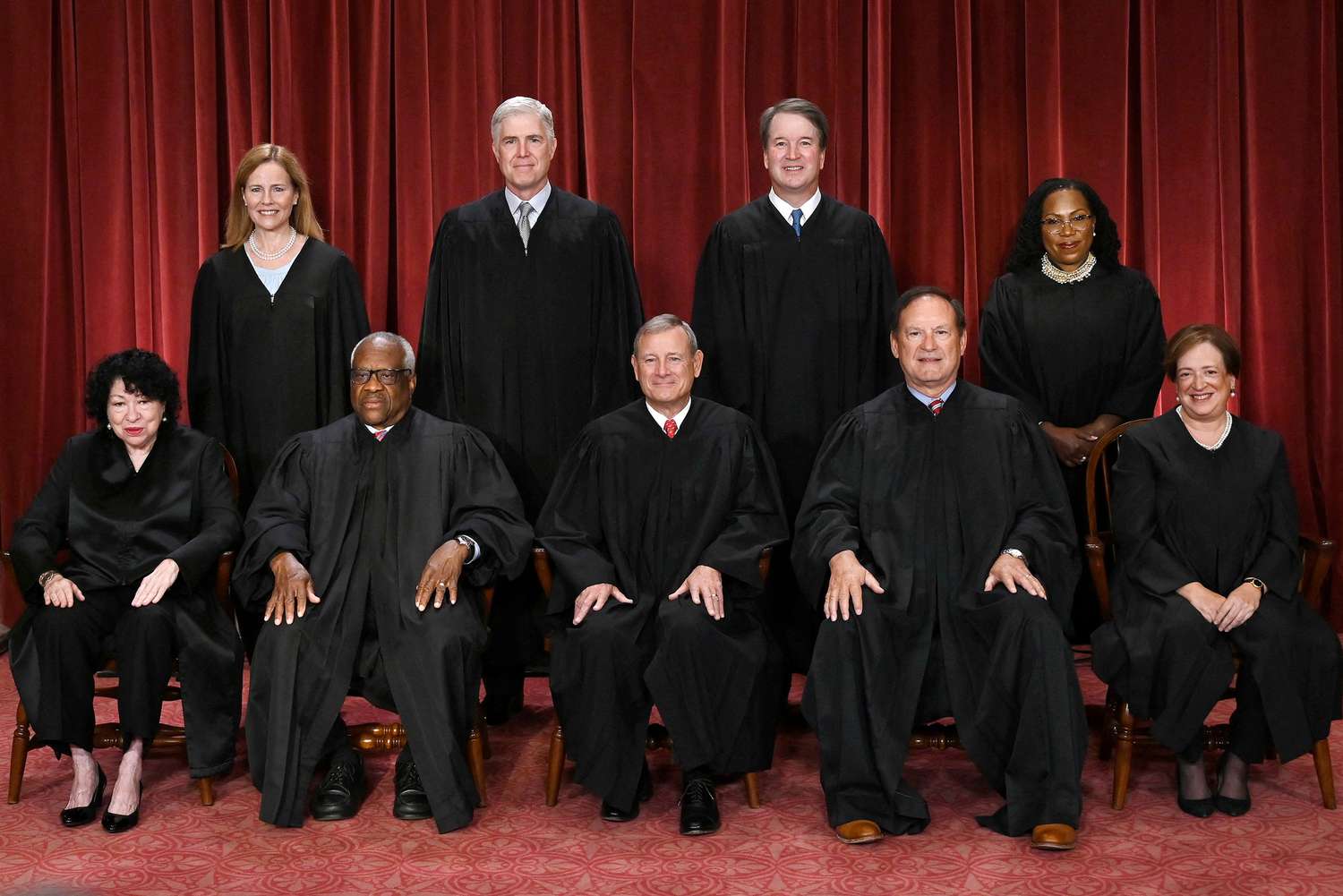Physical Address
304 North Cardinal St.
Dorchester Center, MA 02124
Physical Address
304 North Cardinal St.
Dorchester Center, MA 02124

:max_bytes(150000):strip_icc():format(jpeg)/supreme-court-offical-photo-120622-88043c0c1175412e976296c597517042.jpg)
Supreme Court decided on Birthright Citizenship On Friday, June 27 and make the decision to limit universal injunctions to president Donald TrumpAttempted citizenship restrictions.
The verdict was 6-3, with the court’s six conservative justice that agreed and its three liberal judges dissected.
The decision limits the lower courts authority to block President Trump’s executive decision to terminate the citizenship of birth, with the conservative majority that states: “Universal prohibition is likely to exceed the fair authority that Congress has given to federal courts.”
However, the Supreme Court’s opinion also left the door open to further legal challenges by deciding that Trump’s order against Birthright Citizenship cannot come into force for 30 days from Friday’s opinion.
Since 1868, the United States has followed the law of 14th amendment To the Constitution, which reads, “all persons born or naturalized in the United States, and subject to jurisdiction, are citizens of the United States and the state where they live.”
In his order, entitled ”Protect the meaning and value of US citizenship“Trump claimed that the 14th amendment was only intended to rectify the racist decision in Dred Scott v. Sandford -case 1857, which concluded that black Americans were not citizens. The change, Trump’s order claimed, has then been interpreted” to extend citizenship universally to all born in the United States. ”
The order was then set new restrictions on citizenship and stated:
“The Privilege of United States Citizenship does not automatically extend to persons born in the United States: (1) When that person’s Mother was unlawfully gift in the United States and the Father was not a United States’s Citizen or Lawful Permanent Resident of Said of say Presence in the United States at the time of Said Person’s Birth Was Lawful But Temporary (Such AS, But not Limited to, Visiting the United States under The Auspices of the View Exemption Program or Visit to a Student, Work or Tourist Visa) and the Father was not a National Person or the Father.
Win McNamee/Getty
Twenty -two states sued for Trump’s executive order, in addition to human rights groups, which led to three different federal judges issuing universal prohibitions that excluded the administration from enforcing the new policy. The Trump administration then asked the Supreme Court to intervene.
The essence of the arguments heard by the Supreme Court on March 15 was less about citizenship and more about who has the power to change a law and implement that change.
Never miss a story – register for People’s free daily newsletters Keeping up to date on the best of what people have to offer, from celebrity news to compelling stories of human interest.
Trump-excited lawyer General D. John Sauer opened his arguments by saying that the district court’s judge exceeded his authority under the Constitution by excluding the enforcement of Trump’s order. Conservative justice Samuel Alito Partly agreed and noted his concerns about the 680 district court’s judges across the country who have the power to stop an executive order.
But other justice claimed that if judges cannot stop such an order, a president allows Trump – who in this case tries to rewrite the constitution through executive order – to write laws that attack their political enemies without allowing any legal use.
Chip Somodevilla/Getty
Liberal justice Ketanji Brown Jackson Addressed Sauer’s argument and said: “The actual concern, I believe, is that your argument seems to transform our legal system, in my opinion at least into a catch-me-you-you-can type of regime from the CEO, where everyone must have a lawyer and report a trial in order for the government to stop offending human rights.
Justice justice Brett Kavanaugh questioned Sauer about the simple question of executing Trump’s order.
“The day after it comes into force – this is just a very practical question about how it will work – what does hospital do with a newborn? What do states do with a newborn?” he asked.
“Federal officials will have to figure it out,” the lawyer general replied.
Again, Kavanaugh asked: “How?”
After suggesting that parents will have to prove their citizenship, but not to offer any details about how or when it can happen around a child’s birth, Sauer admitted: “We just don’t know.”